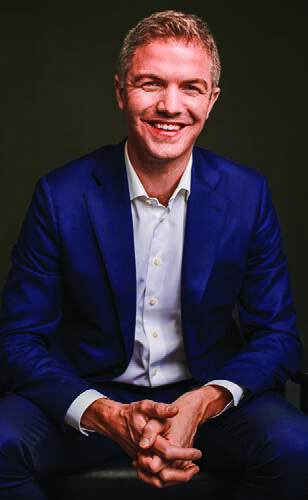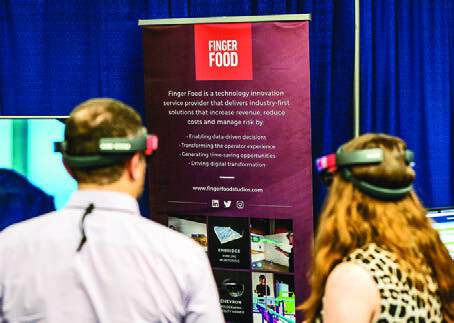Mineral exploration and mining in British Columbia faces many challenges today, such as declining ore grades, difficulty in obtaining operating licenses and environmental and local community constraints. Fortunately, new technologies, such as virtual reality, artificial intelligence and the Internet of Things, many of them developed in B.C., are helping companies meet some of these challenges.
For example, VRIFY Technology Inc. is leveraging technology to build a platform that investors and stakeholders can use to assess and evaluate a mineral exploration or mining company. VRIFY, which is located in downtown Vancouver, says its mission is “to refine stories down to simple, informative and visually compelling experiences which effortlessly communicate what really matters.
“Until now we have relied on two dimensional tools to convey three dimensional stories. People want information simplified, readily accessible, and presented in a digestible manner they can understand without a Ph.D,” the company states on its website.


VRIFY’s technology simplifies information and transforms complex data into content that quickly and clearly explains a company’s value. The platform enables companies to present project data with interactive three dimensional models, host global site visits of remote assets with virtual tours and present content on any device.
VRIFY recently worked with Kirkland Lake Gold Ltd. to launch the KL Gold Deal Room, which makes it easier to attract and assess large numbers of investment opportunities. Kirkland Lake Gold has developed a set of criteria for projects it will consider for possible strategic investments, joint ventures and merger and acquisition opportunities. Companies with assets that require capital and that meet Kirkland Lake Gold’s criteria can make online submissions to the Deal Room using a standardized format.
These are Kirkland Lake Gold’s criteria:
- Commodity: gold, including projects with byproducts;
- Jurisdiction: Australia, Canada, other parts of North America, as well as Europe, New Zealand and South America;
- Stage of development: prepared to evaluate investment into or acquisition of value accretive assets at any stage (exploration, resource definition, PEA/PFS/ FS, development and production); and
- Investment structure: willing to consider various investment structures including, but not limited to: earn-in, joint venture, strategic equity investment, acquisition.

“VRIFY is in the business of disrupting the way things have been done and we’re thrilled to launch the KL Gold Deal Room with Kirkland Lake Gold,” says president and CEO Stephen de Jong. “It may be a tough market for commodities right now, but there is no shortage of compelling opportunities out there waiting to be discovered.”
Likewise, Finger Food Advanced Technology Group (FFATG) develops custom technology solutions for businesses that want to become more efficient and increase profitability. FFATG uses a wide variety of advanced technologies, including augmented reality, virtual reality, artificial intelligence, blockchain, internet of things, games, robotics and holographs.
“These new technologies are disrupting existing business models and can revolutionize how mineral exploration and mining companies do business,” says Nick Facey, Finger Food’s senior director of innovation.
FFATG has a team of 185 experts in offices in Port Coquitlam, Calgary and San Francisco. They include designers, artists, software developers, mechanical and electrical engineers, project managers, marketing and business experts and quality assurance testers.
Facey says the biggest challenge facing most mining executives today is figuring out what their business requires and then which technologies they need in order to get it. “There are a lot of effective solutions available that can improve the way we work,” he says. “Some are still in the experimental stage, but we are seeing serious traction, and increased profitability, for a number of companies already.”
For example, in a recent proof-of-concept project with Newmont Goldcorp, FFATG’s challenge was to see if new technology could make shovel operators more efficient and thereby reduce waste. “The test was a success,” says Facey. “Newmont Goldcorp learned a great deal about how the technology could impact a mine’s productivity.”

FFATG is currently working with AME to develop an online stakeholder collaboration tool for the association’s BC Regional Mining Alliance, a northwest regional partnership between Aboriginal groups, industry and the provincial government.
“The purpose of the tool is to inform the public, break down barriers to communication and build a relationship between the different parties that is based on trust,” says Facey. Presenting important information about an exploration project in a 3D holographic projection will help stakeholders understand how the project will impact them and give them greater confidence, he adds.
“This will result in more active mines, greater trust in the permitting and environmental approval process and better return on investment for the mine operators,” he says.
Finger Food and VRIFY Technologies were both part of the Innovation Hub at Roundup 2019, visit www.roundup.ca for the complete schedule for 2020. The Innovation Hub is part of the Exhibit Hall and is the place to learn about new processes and the latest technologies being applied to mineral exploration and development.
